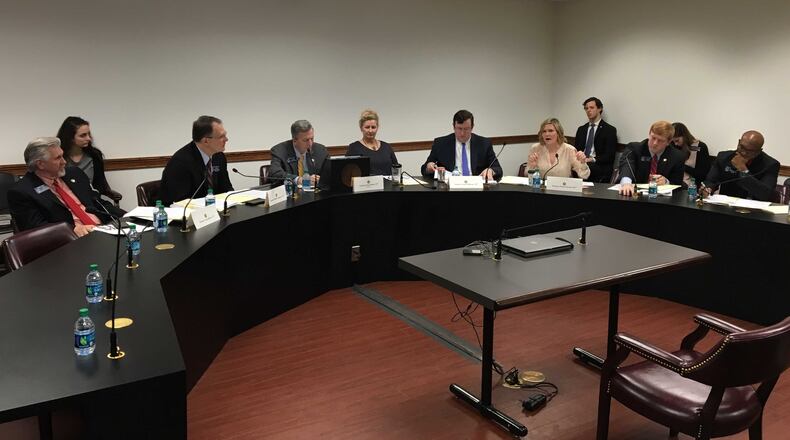The Georgia Senate is scheduled to vote today on Senate Bill 375, a measure to prevent faith-based adoption agencies from being forced to choose between placing children with parents who don't comply with their religious beliefs, and closing their doors. As is the case with any bill involving religious liberty these days, it is opposed by people who call it a "license to discriminate" against gay individuals and couples, even if the bill's language is broader than that.
I haven’t read the bill closely, in part because I am not yet convinced it actually has a chance to become law, and in part because I expect that, at the very least, it will face a slow path through the House, assuming it makes it that far. But I have spoken with enough people about it to know the objections basically come in two flavors:
1. we don’t need a law, because agencies can already do this; and
2. this is intolerable discrimination.
I don’t need to have read the bill to know those two sentiments cannot co-exist much longer.
Something may indeed be allowable today that is also intolerable discrimination; however, history suggests that truly “intolerable discrimination” eventually ceases to be tolerated. One cannot say agencies don’t need a law protecting them because they can already do this, and then in the next breath say the thing they can already do is intolerable. Pick one or the other.
As I said, I haven't really looked deeply at this bill yet, so I don't know if it strikes a proper balance between the rights of the agencies and the rights of potential adoptive parents. (I would point out that, earlier this session, legislators finally passed a bill that puts private attorney adoptions on the same footing as agency adoptions, which ought to mean there are now more options for all Georgians of all backgrounds to pursue an adoption outside the faith-based agencies in question.)
But in general, I would say Georgia has got to find a path out of this friction between religious liberty and gay rights. It isn’t going away, and it isn’t becoming any less intense. The longer it drags out, the uglier it is likely to get.
To my friends who in the name of gay rights adamantly oppose anything pitched as being about religious liberty: Denouncing religious-liberty backers as bigots who should just be ignored has not made them go away. If anything, it has made them more convinced you are coming after them, and they have to act now while they still can. If you need an example of how this kind of tactic can go very wrong for those who say they oppose bigotry, I give you President Donald J. Trump. It is not at all out of the realm of possibility that Georgia could elect a similar governor vis-a-vis this issue.
Now, to my friends who promote religious-liberty legislation: The reverse also holds for you. It is entirely conceivable Georgia could (as soon as this year, though probably more like the next decade) elect a governor who would not only veto the kind of legislation you seek but, in the name of gay rights, actively undo the executive protections faith-based adoption agencies and others have enjoyed up to now. Perhaps you can wait them out ... but they just might wait you out.
The bottom line is that both sides ought to have an incentive -- especially in this election year, with so many high offices up for grabs and the political landscape uncertain -- to reach a mutually agreeable compromise to take this issue off the table for the foreseeable future. If I knew exactly what that compromise ought to look like, I would offer it here; I have to admit that I don’t. But I would point out that, over the years, the Atlanta business community has been the ones to broker such deals. Not only because that community includes folks on both sides of such heated issues, but because they understand as keenly as anyone the importance of an elegant solution to the city’s, and by extension the state’s, continued prosperity.
If SB 375 clears the Senate, that’s where much attention and thought needs to be concentrated.
About the Author
The Latest
Featured



